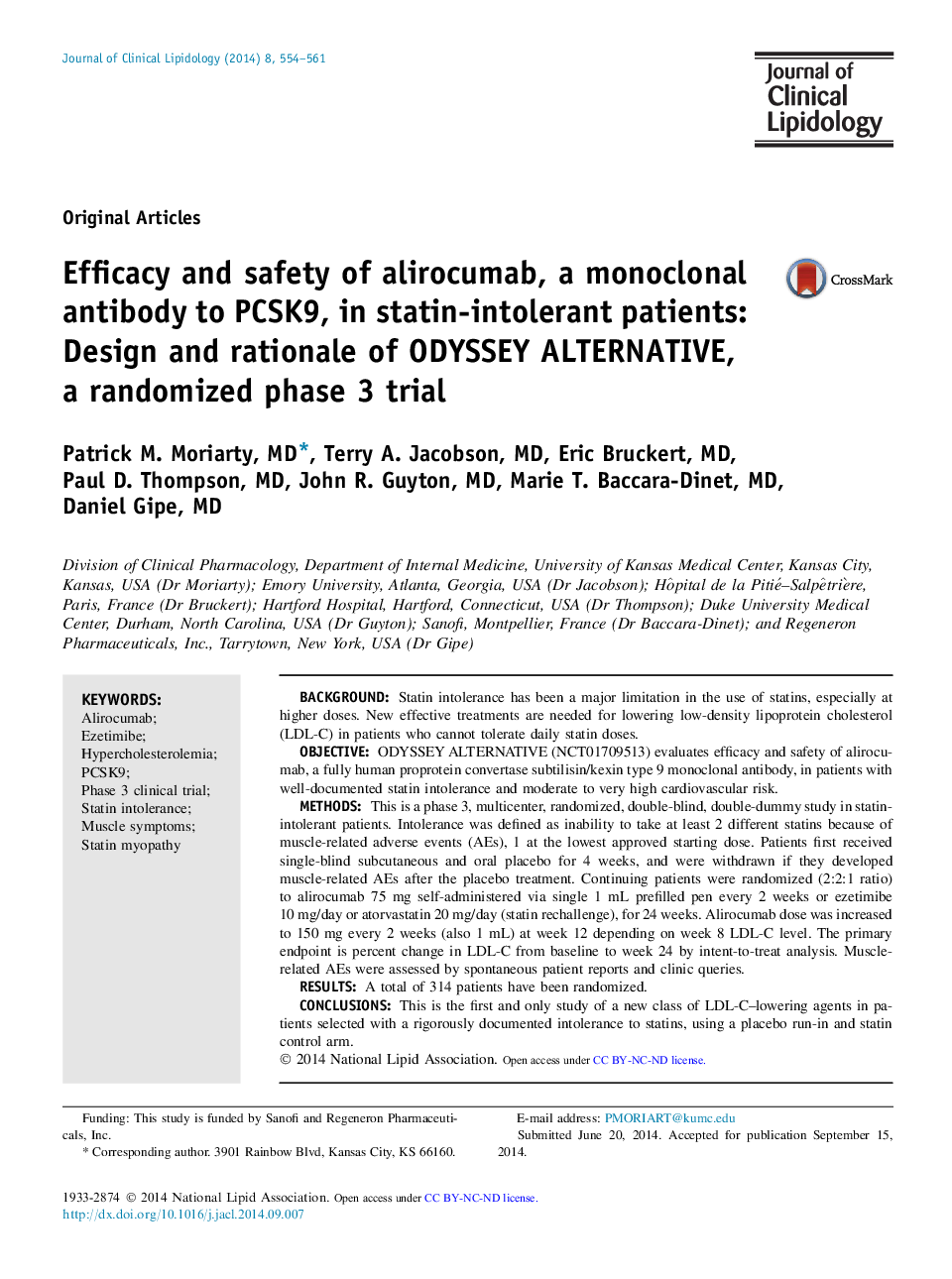| Article ID | Journal | Published Year | Pages | File Type |
|---|---|---|---|---|
| 5985829 | Journal of Clinical Lipidology | 2014 | 8 Pages |
âºIncludes patients unable to tolerate at least 2 statins, 1 at lowest starting dose.âºIntolerance reaffirmed via placebo run-in and blinded statin rechallenge.âºThe only PCSK9 inhibitor study in a well-defined statin-intolerant population.âºAlirocumab will be compared with ezetimibe.
BackgroundStatin intolerance has been a major limitation in the use of statins, especially at higher doses. New effective treatments are needed for lowering low-density lipoprotein cholesterol (LDL-C) in patients who cannot tolerate daily statin doses.ObjectiveODYSSEY ALTERNATIVE (NCT01709513) evaluates efficacy and safety of alirocumab, a fully human proprotein convertase subtilisin/kexin type 9 monoclonal antibody, in patients with well-documented statin intolerance and moderate to very high cardiovascular risk.MethodsThis is a phase 3, multicenter, randomized, double-blind, double-dummy study in statin-intolerant patients. Intolerance was defined as inability to take at least 2 different statins because of muscle-related adverse events (AEs), 1 at the lowest approved starting dose. Patients first received single-blind subcutaneous and oral placebo for 4Â weeks, and were withdrawn if they developed muscle-related AEs after the placebo treatment. Continuing patients were randomized (2:2:1 ratio) to alirocumab 75Â mg self-administered via single 1Â mL prefilled pen every 2Â weeks or ezetimibe 10Â mg/day or atorvastatin 20Â mg/day (statin rechallenge), for 24Â weeks. Alirocumab dose was increased to 150Â mg every 2Â weeks (also 1Â mL) at week 12 depending on week 8 LDL-C level. The primary endpoint is percent change in LDL-C from baseline to week 24 by intent-to-treat analysis. Muscle-related AEs were assessed by spontaneous patient reports and clinic queries.ResultsA total of 314 patients have been randomized.ConclusionsThis is the first and only study of a new class of LDL-C-lowering agents in patients selected with a rigorously documented intolerance to statins, using a placebo run-in and statin control arm.
